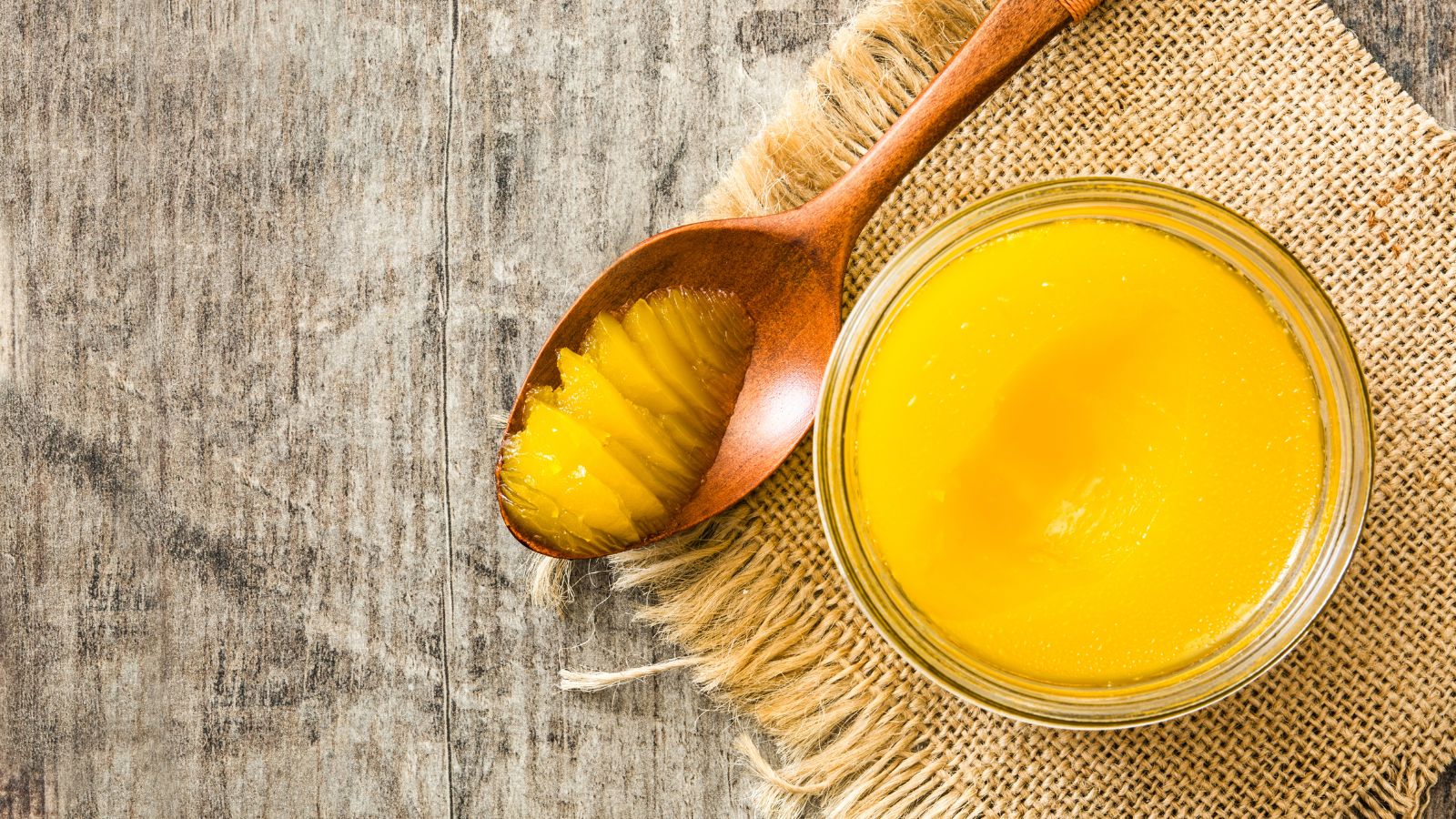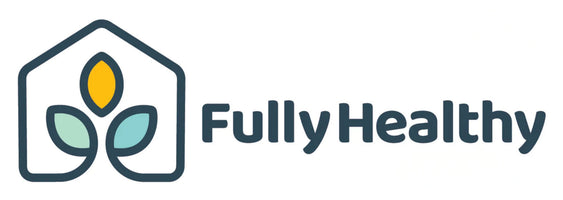
Is Ghee Dairy Free? The Truth About Ghee and Dairy Allergies
Photo Credit: Canva Pro
Is ghee dairy free? Lots of people use ghee as a cooking fat, but some aren't sure if it's dairy-free. The quick answer is no, because ghee is made from butter, which is made from milk.
It does not have much lactose or casein, though, which may help some people digest it better. If you don't eat dairy, this article talks about whether ghee is safe for you, how it affects your health, and the best dairy-free alternatives.
Is Ghee Dairy Free?
Photo Credit: Canva Pro
Is ghee dairy free? The truth is more complicated than that. Ghee is often advertised as an alternative to dairy. When you heat butter to get rid of the water and milk solids, you get ghee. Even though ghee has most milk solids removed, it still contains dairy-derived components such as butterfat and trace milk proteins. Even so, ghee is better for many people with dairy intolerance or lactose intolerance than other dairy products.
What Is Ghee, and How Is It Made?
Usually unsalted butter is heated until the water evaporates and the milk solids sink or caramelize. This is how ghee is made. Butter oil, also called clarified butter, or anhydrous milk fat is what's left. By lowering the amount of protein in the milk, this process makes ghee easier for some people to digest.
-
Heating Butter: This process takes milk solids and turns them into liquid fats.
-
Clarified Butter: Clarified butter is what ghee is, but it is cooked longer to make it taste better and last longer.
-
Homemade Ghee: You can use grass-fed or buffalo milk butter to make ghee at home.
Can Lactose-Intolerant or Dairy-Sensitive People Eat Ghee?
Ghee is typically safe for people who are lactose or dairy intolerant. That's because after the clarification process, there is almost no milk protein or lactose left. For those with a severe dairy allergy, like a cow's milk allergy, ghee is not recommended.
-
Lactose Intolerant People: Most people can handle ghee.
-
Dairy Allergies: There may still be small amounts of milk protein in ghee, so people who are severely allergic should stay away from it.
-
Milk Protein: A milk protein called casein might still be there in small amounts.
Is Ghee Inflammatory Like Dairy?
Photo Credit: Canva Pro
Ghee is generally considered less inflammatory than whole dairy products for those sensitive to lactose or casein, though individual responses vary. That's mostly because it doesn't have any milk solids or a lot of fat, which are what usually cause reactions.
Ghee’s Fat Composition and Anti-Inflammatory Properties
Short chain fatty acids, omega-3s, and butyrate are some of the healthy fats that are found in ghee. These may help keep your gut healthy and lower inflammation in some people. It can also be used for deep-frying because it has a high smoke point and doesn't make harmful compounds like vegetable oils do.
-
Short Chain Fatty Acid: Butyrate is known to help keep the colon healthy.
-
High Smoke Point: You can deep fry with ghee and cook at high temperatures without it breaking down.
-
Healthy Fats: Ghee’s saturated fats offer stability at higher temperatures, but olive oil’s monounsaturated fats are also considered stable for most cooking methods.”
Individual Responses and Saturated Fat Concerns
Saturated fat makes people react in different ways. Grass-fed ghee and butter fat are good for you in small amounts, but too much of them can raise your cholesterol. Too much oxidized cholesterol in ghee may also be bad for you.
-
Grass Fed Ghee: Likely to have more vitamins and nutrients, like CLA and A.
-
Milk Fat and Butter Fat: It has a lot of saturated fat, so use it in moderation.
-
Ghee Dairy: It still has animal fat in it, so it's not good for low-fat diets.
What Is The Disadvantage Of Ghee?
Photo Credit: Canva Pro
While ghee contains certain beneficial fats like butyrate and CLA, excessive consumption can increase saturated fat intake and associated cardiovascular risk. It's still high in fat, so people with heart problems or high cholesterol should eat it in moderation.
Potential Heart Health Risks From Overuse
Eating too much ghee butter can raise LDL cholesterol and make arteries narrow. This risk is greater if the ghee is made from bad butter or if it is eaten too often.
-
Milk Fat: It's full of saturated fat, which is bad for your heart.
-
Butter Oil: If eaten in large amounts, it can lead to clogged arteries.
-
Regular Butter vs. Ghee: Both ghee and butter are high in saturated fat, which may raise LDL cholesterol levels and increase the risk of cardiovascular disease if consumed in large amounts.
Other Health Concerns Linked To Excessive Intake
Eating too much ghee can make you gain weight that you don't want. People with food allergies or a history of heart disease in their family should be very careful about how much fat they eat.
-
Consume Ghee Wisely: Small amounts can be added to change the taste and feel.
-
Food Allergies: Never assume that ghee doesn't contain small amounts of milk protein.
-
Balance With Oils: Adding olive oil, avocado oil, or coconut oil will change things up and be good for you.
Is There Dairy-Free Ghee?
Photo Credit: Canva Pro
Labels can be hard to understand for people who are looking for ghee that is dairy-free. Though traditional ghee does have some milk solids and milk fat in it, they are very small amounts.
This may not work for people who are allergic to dairy or have severe lactose intolerance, though. Lucky for us, there are vegan ghee options made from oils that come from plants that work just as well as dairy ghee.
What Is Vegan Ghee, And How Is It Different?
Making vegan or dairy-free ghee is easy. You just need plant-based cooking oils like avocado oil, coconut oil, or a mix of oils. It tastes and feels like traditional butter and ghee, but doesn't use any milk or milk products like cow's milk or goat's milk. These are safe for people who can't have any milk fat or butter fat because they are allergic to it or can't handle it.
-
Casein Free: Vegan ghee is safe for people who are allergic to dairy because it doesn't have any milk protein in it.
-
Made with Plants: Coconut oil, avocado oil, and other plant fats are often used as ingredients.
-
Free from Milk Solids: These are not made by heating butter or separating milk fat like ghee is.
Who Should Opt For Vegan Ghee Alternatives?
People who can't handle even small amounts of dairy should use vegan ghee. These products are safe for people who are allergic to cow's milk, have trouble digesting lactose, or don't eat dairy. Because it has a high smoke point, it can also be used in recipes that need to be cooked over high heat
-
Dairy Free Diet: Great for people who can't have any milk products.
-
Allergic Reaction Risk: There is no chance of cross-contamination or casein.
-
Cooking Flexibility: Much like ghee, it's great for baking, frying, and sautéing.
What Does FullyHealthy Offer, And How Does It Relate To Dairy-Free Ghee?
Highly recommended online store FullyHealthy specializes in selling foods that can't be digested by people who are lactose or have dairy intolerance or who have food allergies.
This website, which used to be called ShopAIP, chooses products that don't contain common allergens like gluten, dairy, or grains. This includes a number of ghee dairy-free options, such as oils, vegan ghee, and other safe cooking fats.
FullyHealthy’s Role In The Allergen-Free Marketplace
FullyHealthy specializes in low-allergen, clean-label foods. Shopping with confidence, without having to read every ingredient label, helps people who are looking for truly dairy-free options. Inspiring people with autoimmune diseases, lactose intolerance, and dairy allergies with this website.
-
Curated For Safety: Products are chosen to meet demanding dietary needs.
-
Focused Categories: Contains labels that say it is dairy-free, casein-free, and more.
-
Specialty Oils: Offers alternatives like avocado oil and coconut oil.
How FullyHealthy Supports Dairy-Free And Ghee Alternatives
FullyHealthy sells foods that are good for gluten-free diets and have health benefits similar to dairy. Some choices may have added vitamins A, D, and E that dissolve in fat, as well as fats like butyric acid and conjugated linoleic acid, which are the same substances found in regular ghee but come from plants.
-
Rich in Healthy Fats: Better digestion and the absorption of nutrients.
-
Non-Dairy Benefits: Taste and texture don't have to be sacrificed.
-
Safe for Allergies: Excellent for people who have dairy intolerance or are worried about allergic reactions.
Final Thoughts
So, is ghee dairy free? The answer is in line with your health needs. When butter is heated, most of the milk fat and protein are removed. However, casein and lactose are still present in some amounts. It should not be eaten by people who are allergic to dairy or casein.
For people with mild lactose problems, on the other hand, cooking with ghee without dairy is often fine. If you can't have dairy at all, vegan ghee made from avocado oil or other cooking oils is a better choice. The flavor of ghee is also very rich, and its smoke point is very high.
This makes it perfect for high-heat recipes and traditional ways of cooking like Sri Lankan. Since ghee has butter fat and maybe some lactic acid in it, it's not always better than regular dairy for everyone.
FAQs
Is ghee dairy free and lactose free with butter fat still in it?
Ghee has butter fat and is not fully lactose free, so not good for dairy allergies.
Can I use avocado oil instead of ghee dairy free in Sri Lankan cooking?
Yes, avocado oil is great for Sri Lankan cooking and works like ghee dairy free.
Does heating butter remove lactic acid and make it casein free?
Heating butter removes most water and milk solids (including casein and lactose), but trace milk proteins may remain, so ghee is not entirely casein-free.
Is ghee safe for casein allergy and dairy allergies?
No, ghee has risk for casein allergy and dairy allergies even if small.
What cooking oils have very high smoke point like ghee dairy?
Avocado oil and other cooking oils have very high smoke point like ghee dairy free.

Leave a comment